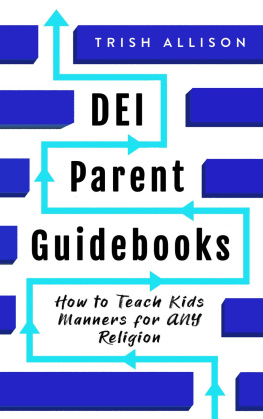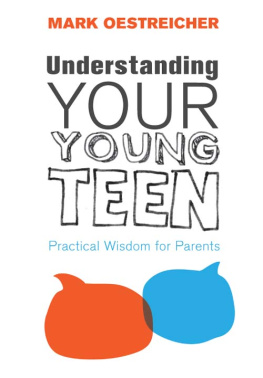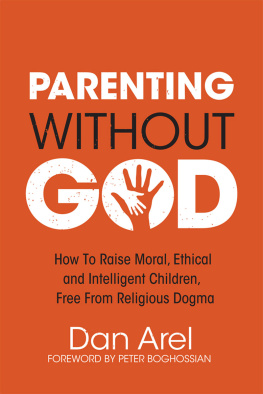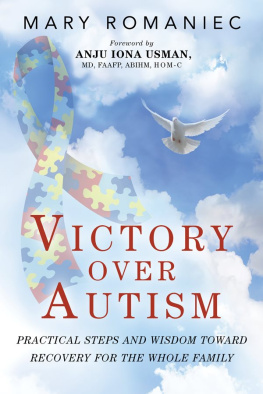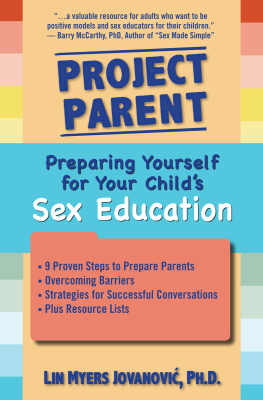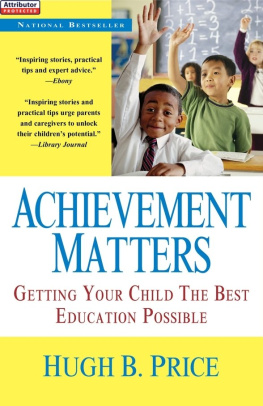Connecting with Parents
A Catechists Guide to Involving Parents in Their Childs Religious Formation
Mary Twomey Spollen

PAULIST PRESS
New York/Mahwah, NJ
The Scripture quotations contained herein are from the New Revised Standard Version: Catholic Edition Copyright 1989 and 1993, by the Division of Christian Education of the National Council of the Churches of Christ in the United States of America. Used by permission. All rights reserved.
Cover & book design by Lynn Else
Copyright 2007 by Mary Twomey Spollen
All rights reserved. No part of this book may be reproduced or transmitted in any form or by any means, electronic or mechanical, including photocopying, recording, or by any information storage and retrieval system without permission in writing from the Publisher.
Library of Congress Cataloging-in-Publication Data
Spollen, Mary Twomey.
Connecting with parents : a catechists guide to involving parents in their childs religious formation / Mary Twomey Spollen.
p. cm.
Includes bibliographical references.
ISBN 978-0-8091-4469-3
1. Christian education of children. 2. Spiritual formationCatholic Church. 3. Parent and childReligious aspectsCatholic Church. 4. Initiation ritesReligious aspectsCatholic Church. 5. Religious education of children. 6. ChildrenReligious life. I. Title.
BX926.3.S66 2007
268.432dc22
2007000046
Published by Paulist Press
997 Macarthur Boulevard
Mahwah, New Jersey 07430
www.paulistpress.com
Contents
You are volunteering to be a catechist, possibly with some reluctance, but with a willingness to read and consider ideas that will help you with the classes. The request to be a catechistcoming as it does from your pastor, a neighbor, or the parish director of religious educationis a special call from God.
Your story is similar to the account of the boy Samuel in the Old Testament. For several nights young Samuel woke the elderly Eli and asked why he was calling him in the middle of the night. Eli assured Samuel that he was not the one calling him. Eli, a holy man, recognized that God was calling this special boy, Samuel. Eli told Samuel that he must ask God what he wanted the next time God suddenly called him from sleep (1 Samuel 3). It is significant that Samuels call came in the middle of the night, when he might not have been thinking straight, and yet he became a great prophet! You have responded to a need in your parish, and you can trust that the call from God is authentic. Now it is your turn to ask God, Why? and How?
Current Trends in Religious Education
Wonderful people like you who come forward to be catechists are usually also very busy with work outside the home, other volunteer work, and the care of your own family. However unprepared you think you are, you are special for seeking a deeper understanding of catechesis. The first consolation here is to assure you that you are not alone and that you are only a part of the story in the spiritual education of children and young people.
Family-Centered Catechetical Programs
Parents are the first and primary religious educators of their children. To help you understand that this is true, you should know that, in some parishes, catechesis has been returned completely to the parents in total-family catechetical programs. This approach, which is one of many, requires that parents meet with instructors at designated intervals. In between larger group meetings, parents teach their own children in their own homes, or they share the catechetical formation with a few other families.
Parish-Wide Catechetical Programs
A newer but growing approach is a whole-parish program of catechesis designed to focus on all parishioners. The entire parish is involved in its own catechesis, with the expectation that during the week families will reflect on the Sunday readings and homily. Groups may meet for more enrichment, but the idea is not to burden families with more meetings than necessary. Sanctity and connection with God come from the life lived by a good family and from its willingness to turn to God periodically in its own space and time. In a catechesis for the whole community, sacraments are important events for the whole parish, and baptism is a special priority in the commitment of each parishioner. All levels of faith are welcome in this approach, and households of all forms are cherished as important and integral to the parish family. The parish familys identity as Christian is marked by outreach projects that show concern and care for the poor. Sharing groups may be intergenerational and replace the traditional classes.
Parents and the Church: Primary Educators in Faith
As you think about these varied approaches to religious education, you can appreciate that children and parents are learning together in a variety of catechetical programs. So parents should not see their inclusion in their childrens catechetical classes as an imposition. It is not just enrichment or creative teaching. The Church tells us that parents are the primary religious educators of their children and have a responsibility to participate in their childs religious learning. The Churchs guidance comes directly from the General Directory for Catechesis published in 1998. This is the Churchs official teaching on catechesis for all Catholics and is central to our consideration of all things related to the teaching of religion. The General Directory for Catechesis is the result of research and reflection by the bishops, catechetical experts in Rome, and documents from Pope John Paul II. Throughout the document, the prevailing attitude is that religious education holds a sacred status in the Church for all Catholics, not just children. At this point you should give yourself a spiritual blessing, knowing that you have embarked on a very important and holy adventure and are a significant instrument in the work of the Church.
The General Directory for Catechesis is very specific in stating that parents are responsible for the religious development of their children. Therefore, whatever efforts we make to guide families is a kind of evangelization in the Church. We are setting out some watering cans for the grace that God so generously pours forth in love into the midst of all families and for every member of the family.
While being spiritual and inspiring, the General Directory for Catechesis is also practical and recognizes that in the lives of Catholic families there are wonderful teachable moments. Aware of real life and the milestones of every family, the General Directory encourages communities of faith to seize upon those special times when couples come to be married, bring babies for baptism, and later present their children for religion classes and other sacraments. Moreover, in a gesture to extended and reconstructed families, the General Directory for Catechesis no longer suggests using only priests and religious as catechists, as in past generations. It makes an appeal to the elderly to be the instructors of the young and recommends that catechesis should be intergenerational.
The Challenge of Including Parents
Following the inspiration of the General Directory, our own bishops published the National Directory for Religious Education in 2005. The National Directory sets the General Directory within the culture of the United States. It alerts catechists to the particular challenges they will face in teaching about God and spirituality within an atmosphere of relative affluence and competitive attitudes toward financial success. American children also tend to be more critical at an earlier age and have less time and leisure to participate in religious activities.
Next page

